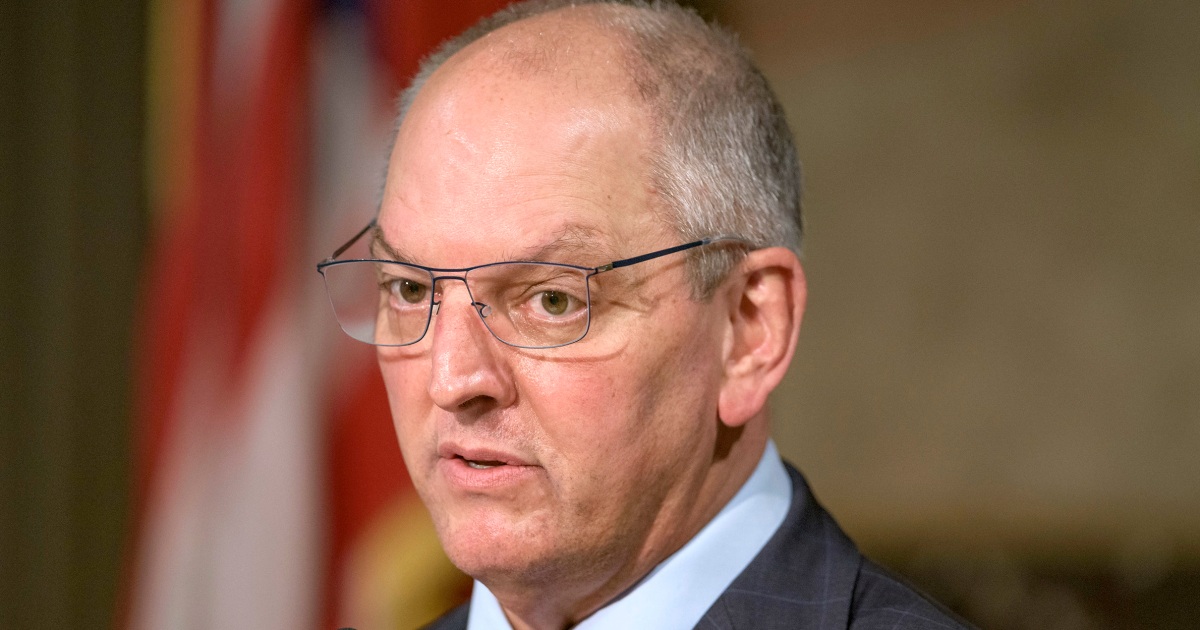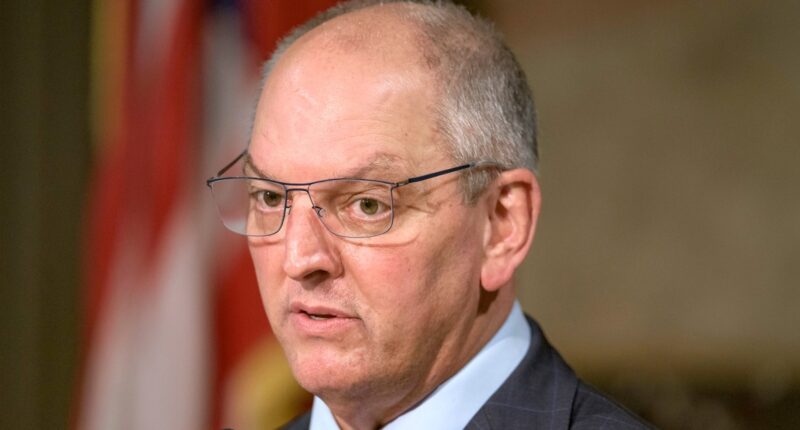
BATON ROUGE, La. — Louisiana’s Republican-dominated Legislature overturned Democratic Gov. John Bel Edwards’ recent veto of a ban on gender-affirming care for transgender minors on Tuesday.
Louisiana, where the ban is scheduled to go into effect Jan. 1, 2024, will join 20 other states that have enacted laws restricting or banning gender-affirming medical care, which includes puberty-blockers, hormone treatment and gender reassignment surgery. Most of those states face now lawsuits, and in some places the bans have been temporarily blocked by federal judges.
Like statehouses across the country, for the last three months Louisiana lawmakers have heard and held debates over gender-affirming care — something that has been available in the United States for more than a decade and is endorsed by major medical associations. Discussions over the ban were marred by misinformation, swarmed with religious arguments and saw hours of emotional testimony from the LGBTQ community.
At one point, during the regular legislative session, the proposed ban was presumed dead after a veteran Republican lawmaker cast a tie-breaking vote to kill the bill. However, amid pressure from Louisiana Attorney General Jeff Landry, who is a GOP gubernatorial frontrunner, and the Republican Party of Louisiana, the bill was resurrected and passed.
Gov. Edwards used his power to veto the bill, but in return the GOP-led Legislature gathered at the Capitol Tuesday for a brief one-day veto session. It was only the third time a veto session has been held since 1974 and the second time lawmakers have overridden the governor — the only other being last year when lawmakers overturned Edwards’ veto of a congressional redistricting bill.
Republicans maintain that they are trying to protect children, while opponents argue the bill would do the opposite, leading to heightened risks of stress, depression and suicidal thoughts among an already vulnerable group.
“I think that in this instance, in following other Southern states passing this bill, legislators put politics over people without considering the practical impacts of the bill,” Edwards said in a scathing veto message. “I firmly believe that the legislature has overstepped its authority and is interfering in critical healthcare decisions that only parents should make in consultation with their children and their children’s physicians and psychologists.”
In order to override the governor and force a bill into Louisiana law, two-thirds approval from both the House and Senate is needed. The GOP currently holds a two-thirds majority in both chambers. The override had the votes needed, with a few Democrats siding with Republicans — forcing the bill to law, pending any possible court battles that may block or delay the ban.
Louisiana joins a growing list of states that have enacted bans. But opponents say they are confident that courts will find the laws unconstitutional and strike them down.
A federal judge struck down Arkansas’ ban as unconstitutional, and federal judges have temporarily blocked bans in Alabama and Indiana. A federal judge in Kentucky who had temporarily blocked that state’s ban later lifted his order and allowed the law to take effect. A federal appeals court has allowed Tennessee’s ban, which had been blocked by a federal judge, to take effect. Oklahoma has agreed to not enforce its ban while opponents seek a temporary court order blocking it. In addition, a federal judge has blocked Florida from enforcing its ban on three children who have challenged the law. The rulings against the bans so far have come from judges appointed by both Democratic and Republican presidents.
Louisiana lawmakers also attempted to overturn two other controversial LGBTQ bills that Edwards vetoed; a “Don’t Say Gay” bill that broadly bars teachers from discussing gender identity and sexual orientation in public school classrooms; and a measure requiring public school teachers to use the pronouns and names that align with what students were assigned at birth. Both attempts were unsuccessful and as a result will not become law.
Louisiana’s culture divide over LGBTQ-related legislation echoes what has been seen in GOP-led statehouses across the country. Bills targeting transgender people have topped conservative agendas, and LGBTQ advocates say a dangerous and blatant attack is happening on their community. This year alone, more than 525 anti-LGBTQ bills were introduced in 41 states, according to data collected by the Human Rights Campaign, the nation’s largest LGBTQ advocacy organization.
Source: | This article originally belongs to Nbcnews.com









